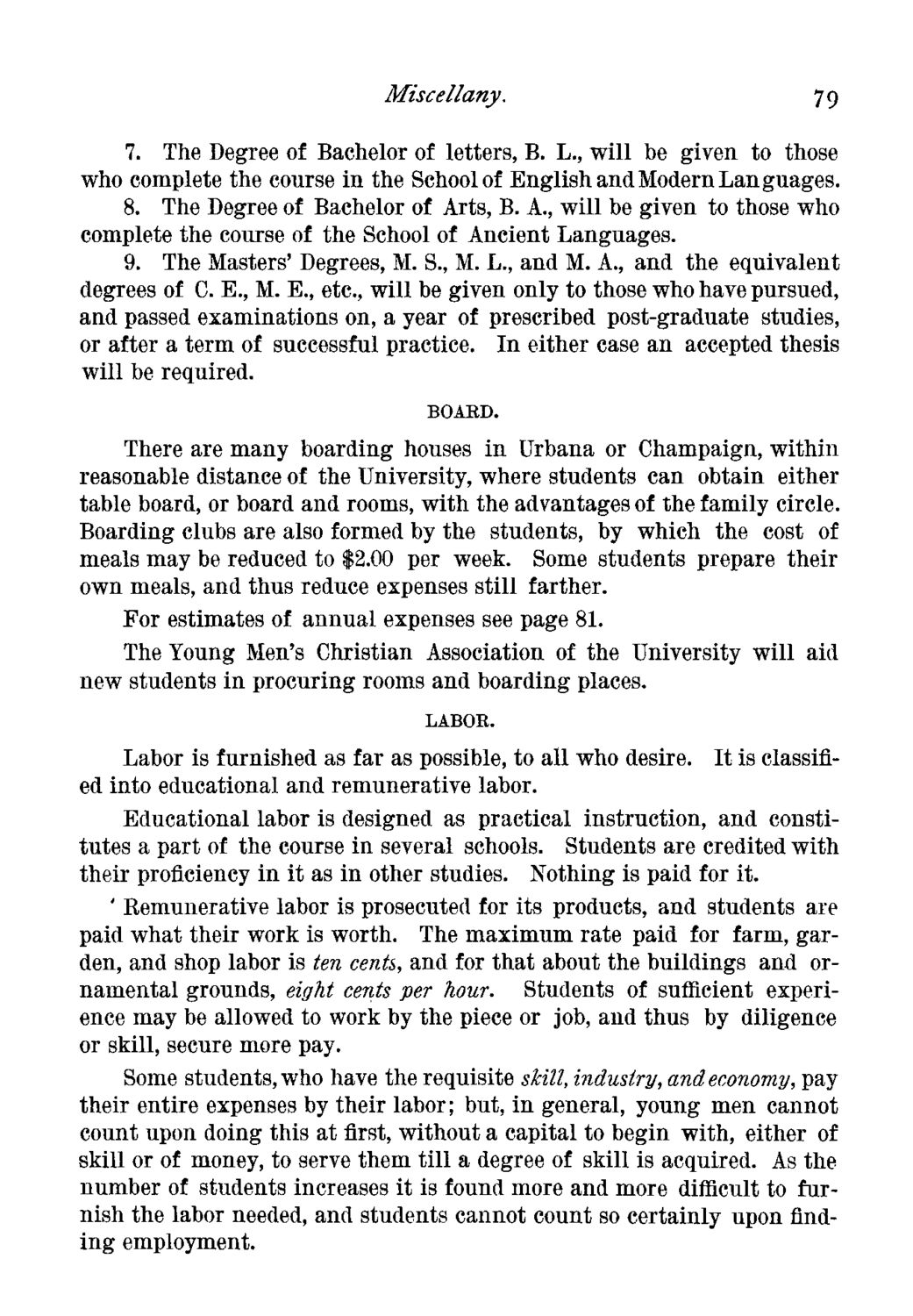| |
| |
Caption: Course Catalog - 1881-1882
This is a reduced-resolution page image for fast online browsing.

EXTRACTED TEXT FROM PAGE:
Miscellany. 79 7. The Degree of Bachelor of letters, B. L., will be given to those who complete the course in the School of English and Modern Languages. 8. The Degree of Bachelor of Arts, B. A., will be given to those who complete the course of the School of Ancient Languages. 9. The Masters' Degrees, M. S., M. L., and M. A., and the equivalent degrees of C. E., M. E., etc., will be given only to those who have pursued, and passed examinations on, a year of prescribed post-graduate studies, or after a term of successful practice. In either case an accepted thesis will be required. BOAKD. There are many boarding houses in Urbana or Champaign, within reasonable distance of the University, where students can obtain either table board, or board and rooms, with the advantages of the family circle. Boarding clubs are also formed by the students, by which the cost of meals may be reduced to $2.00 per week. Some students prepare their own meals, and thus reduce expenses still farther. For estimates of annual expenses see page 81. The Young Men's Christian Association of the University will aid new students in procuring rooms and boarding places. LABOE. Labor is furnished as far as possible, to all who desire. It is classified into educational and remunerative labor. Educational labor is designed as practical instruction, and constitutes a part of the course in several schools. Students are credited with their proficiency in it as in other studies. Nothing is paid for it. ' Remunerative labor is prosecuted for its products, and students are paid what their work is worth. The maximum rate paid for farm, garden, and shop labor is ten cents, and for that about the buildings and ornamental grounds, eight cents per hour. Students of sufficient experience may be allowed to work by the piece or job, and thus by diligence or skill, secure more pay. Some students, who have the requisite skill, industry, and economy, pay their entire expenses by their labor; but, in general, young men cannot count upon doing this at first, without a capital to begin with, either of skill or of money, to serve them till a degree of skill is acquired. As the number of students increases it is found more and more difficult to furnish the labor needed, and students cannot count so certainly upon finding employment.
| |